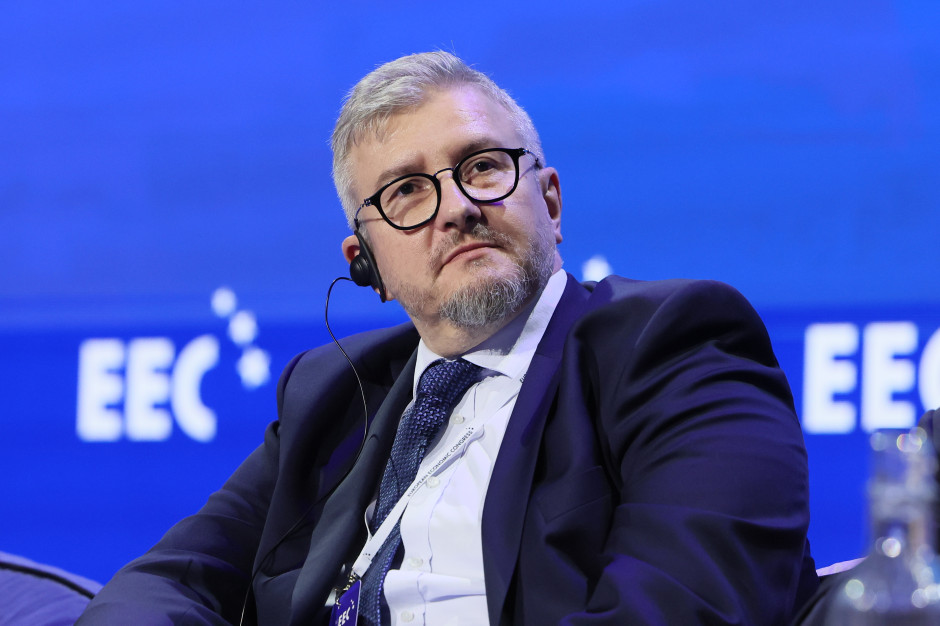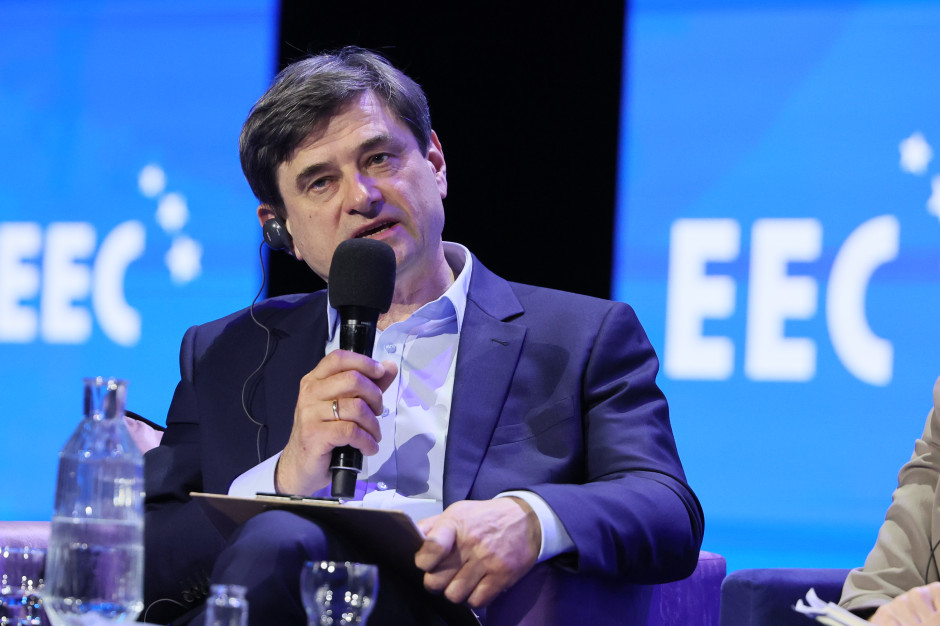- EDITIONS
- FOR THE MEDIA
- CONTACT
- EEC MEMBERS
- EEC TRENDS
- PO POLSKU

Poznań, not Warsaw, is the beating heart of Polish high-tech. A European quantum computer and an AI factory will be commissioned in June in the capital city of Greater Poland. At the moment, Poland has six leading scientific centres specialized in deep tech.
The entire world knows Silicon Valley in the United States. But where is the beating heart of Poland’s technological sector? In Poznań, apparently, thanks to Poznan Supercomputing and Networking Centre, a research and development unit of the Polish Academy of Sciences.
Thanks to the effort of engineers working at Poznan Supercomputing and Networking Centre, a European quantum computer is going to be commissioned there in June.
Proxima, a computer currently working there, is ranked 83. among the world's TOP 500. The centre is also going to host a new AI factory.
“We are a unique node connecting the network, super powerful computers, quantum technologies, and AI,” said a representative of the director of Poznan Supercomputing and Networking Center, Robert Pękal.
He added that for 31 years the centre has supported Polish science, economy, and the public sector in terms of infrastructure and services. “We are expanding the scale of our cooperation with entrepreneurs,” he added.
“We operate a Pioneer network consisting of 11,000 kilometres of optical fibre, connecting all academic centres, academic hospitals and many other public facilities in the country, providing high-speed broadband infrastructure,” said Pękal.
 Pękal zaznaczył, że PCSS nie jest jedynym rozwiniętym technologicznie ośrodkiem w kraju. Fot. PTWP
Pękal zaznaczył, że PCSS nie jest jedynym rozwiniętym technologicznie ośrodkiem w kraju. Fot. PTWPPękal highlighted that Poznan Supercomputing and Networking Center is not the only technologically advanced centre. There are six such facilities in the country, based in Cracow, Gdańsk, Warsaw, Świerk and Wrocław.
“It is only a matter of time when the Academic Computer Centre Cyfronet AGH in Cracow applies to host another AI factory, while a centre in Wrocław is launching a quantum computer. As you can see, AI centres are developing at an even pace,” concluded Pękal.
Deputy director at the Department of Cybersecurity at the Ministry of Digital Affairs Marcin Wysocki said that Poland’s situation is the same as the rest of the European Union when it comes to semiconductors.
“We need them and the state must create conditions for investments as well as incentives that will attract investors from the chip-making industry,” said Wysocki.
 Wysocki stwierdził, że jeśli chodzi o rozwój fabryk AI oraz półprzewodników, to jako kraj jesteśmy pod tym względem w takiej samej sytuacji jak cała UE. Fot. PTWP
Wysocki stwierdził, że jeśli chodzi o rozwój fabryk AI oraz półprzewodników, to jako kraj jesteśmy pod tym względem w takiej samej sytuacji jak cała UE. Fot. PTWPWysocki reminded how important it is in the context of what was decided in the United States in January. The new American administration limited exports of advanced semi-conductors used in the development of AI to some countries of Central and Eastern Europe, including Poland.
“We cannot give up, although admittedly over 90% of semi-conductors used in Poland are imported.” “The country cannot rely on one source of supply. We need to talk to our partners in the European Union, South Korea, and Taiwan,” enumerated Wysocki.
The deputy director insisted that Poland must be the leader of high-tech, implement latest solutions and adjust them to its needs, at the same time “being capable of constructing its own chipsets”.
 Jerzy Godek zapewnił, że również biznes jest gotowy na transformację cyfrową. Fot. PTWP
Jerzy Godek zapewnił, że również biznes jest gotowy na transformację cyfrową. Fot. PTWPMember of the management board and Chief Technology Officer at EmiTel Jerzy Godek assured that domestic businesses are ready for digital transition and that it is already underway. He talked about projects conducted by EmiTel, including smart metering, digital management of urban lighting, 5G networks, private networks, as well as data centres.
Jacek Siemiończyk, the deputy director at the Center for Information Technology, also joined the discussion on the future of the digitisation of Poland. He emphasized the fact that we are catching up with the rest of Europe, quoting Standard PolishCloud 2.0 as an example.
Siemiończyk talked on the role of the state, which he believes is educating citizens and increasing their trust in public institutions.
 Jacek Siemiończyk przyznał, że niecała administracja publiczna stoi na zaawansowanym poziomie. Fot. PTWP
Jacek Siemiończyk przyznał, że niecała administracja publiczna stoi na zaawansowanym poziomie. Fot. PTWPIn his opinion, compared to other member states of the European Union, Poland is doing great in terms of digitisation, although the available statistical data might not necessarily attest to it.
He pointed at the mObywatel app, used by a staggering 9 million Poles, as an example of success.
The deputy director added that soon Europeans will have digital identity, obsoleting traditional identity documents.
He did admit, though, that not all Polish administration is so technologically advanced and that local government “has a digital debt to pay”.

You watching archival version of European Economic Congress
What you can do:
Go to the current edition page or Continue browsing